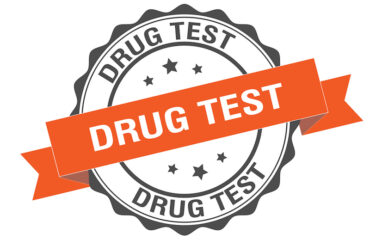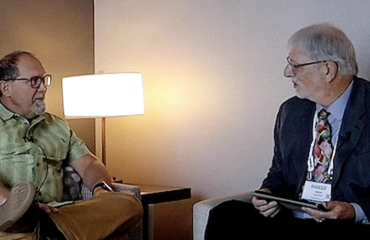A Conversation with Dr. William Morrone on Opioid Use Disorders
This episode of Justice Speaks focuses on the disease of Opioid Use Disorder (OUD) and the intersection of law and medicine, and its impact on the criminal justice system. In this episode, we interview Dr. William Morrone, a physician specializing in Substance Use Disorder (SUD) medicine. This episode is sponsored by Indivior.
Dr. Morrone’s Path to Treating Substance use Disorders
Dr. Morrone’s path into SUD medicine wasn’t straightforward. While he aspired to pursue a career in medicine, financial concerns delayed his dream of becoming a doctor. Finally, however, he was able to enter Michigan State University College of Osteopathic Medicine. It was then, during his internship in Michigan, that he first encountered the profound problem of Substance Use Disorders.
Upon graduation, Dr. Morrone pivoted towards family medicine, saying that he recognized its capacity to address substance dependency, particularly among teenagers and pregnant women. However, he soon realized the limitations imposed by traditional medical practices, which led him to specialize in SUD medicine. He has spent the last 20 years at Covenant Hospital in Saginaw, where he tells us that he spearheaded innovative approaches to treating pregnant women struggling with SUD. Dr. Morrone relates how he helped found the Recovery Pathways Behavioral Health Institute, which specializes in adolescent SUD treatment.
In the process of learning about SUD, Dr. Morrone became board certified by the American Board of Addiction Medicine and the American Society of Addiction Medicine. Dr. Morrone then tells us about how he began working with courts, and in particular with specialty Treatment Court programs. He states that serving as an “Adult Drug Treatment Court incubator,” he lends his expertise to courts seeking to integrate evidence-based practices into their frameworks.
Substance Use Disorder is a Brain Disease
During our interview, Dr. Morrone advocates for the recognition of SUD as a brain disease rather than a moral failing. He notes that reframing dependency through a medical lens underscores the importance of comprehensive, evidence-based interventions to promote lasting recovery. He then points out that overdose is a major problem not just in general, but particularly for those individuals suffering from Opioid Use Disorder (OUD) upon release from incarceration. The doctor goes on to talk about the medications Naloxone and Nalmefene that can be used to help prevent overdose deaths.
Medication-Assisted Treatment Matters
He says we all must understand the importance of Medication-Assisted Treatment (MAT), particularly for OUD. His advocacy for the integration of MAT into the criminal justice system is both pragmatic and compassionate. He argues that providing individuals with access to life-saving medications like buprenorphine improves outcomes, which he says is a paradigm shift in how we approach dependency within the confines of justice. He goes on to describe the systemic barriers that persist, hindering the widespread adoption of MAT in correctional settings, which he says underscores the urgent need for policy reform.
Wrap Up
In conclusion, Dr. Morrone says his participation in initiatives like the American Probation and Parole Association’s training on MAT exemplifies his commitment to effecting tangible change.
We wish to thank Dr. Morrone for sharing his insights and experiences on Justice Speaks. We also wish to thank Indivior for sponsoring this podcast episode.
Additional Resource
You can watch this interview by going to the Justice Speakers Institutes’ YouTube Channel or by clicking here.
Get more articles like this
in your inbox
Subscribe to our mailing list and get the latest information and updates to your email inbox.
Thank you for subscribing.
Something went wrong.








